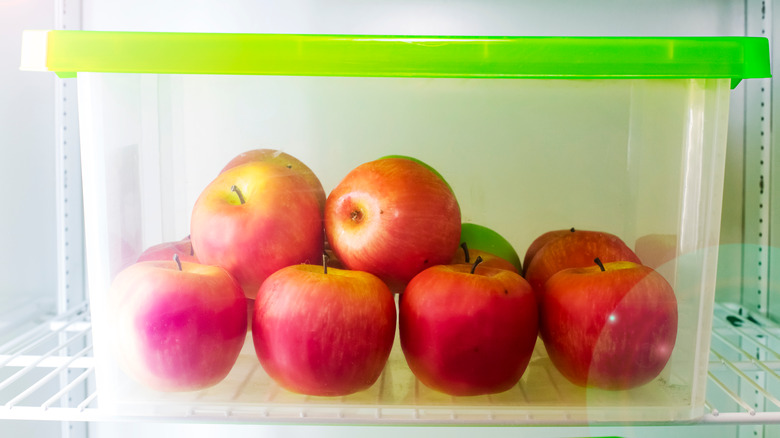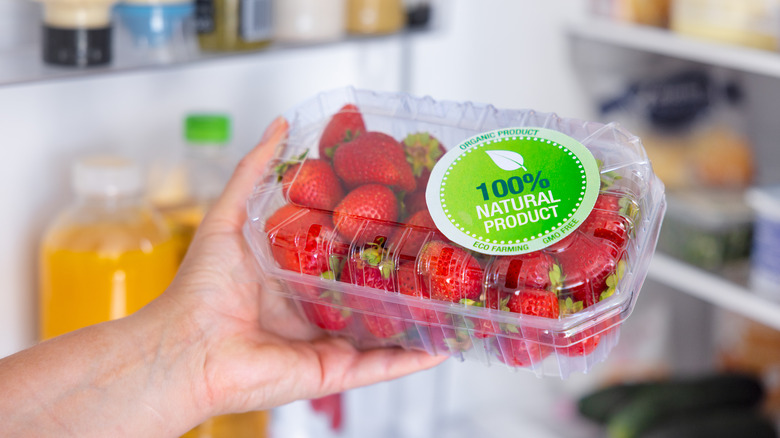Why You Should Never Refrigerate Strawberries And Apples Together
Despite your best efforts, some foods just don't get along — and we're not talking about taste here. While some food combinations like pickles and peanut butter may sound unappetizing, even the most unlikely pairings have a place in some peoples' hearts. But when it comes to storage and spoilage, certain produce items bring out the worst in each other and need separate real estate in the fridge.
Here are a few foods you'll want to put in time out: ripe bananas and raspberries, kiwis and watermelon, and apples and strawberries. On the flip side, however, you can use this banana trick to ripen an avocado quickly. But in general, the aforementioned fruits fall into two categories, and for the longest-lasting produce, you'll want to separate them. If stored properly, apples can keep for up to six weeks in the fridge, and strawberries can stay fresh for up to a week — and to make sure they last that long, you'll want to keep them apart.
Apples speed up the ripening process for strawberries
According to the United States Department of Agriculture (USDA), fruits that produce ethylene should be kept away from those easily affected by ethylene. This gas does promote fruit ripening, which we all want for juicy, succulent produce — but it can quickly turn your food into a mess if not stored properly.
Fruit can be either ethylene-producing (like apples) or ethylene-absorbing (like strawberries). And if the two spend too much time around each other, the producers will cause the absorbers to ripen quicker than normal, which may mean that your strawberries will go bad before you've had the chance to eat them. It's not just fruit that's sensitive to ethylene — veggies like asparagus, broccoli, and collard greens also feel the effects of the gas. Luckily, some foods, like blueberries, oranges, and cherries, aren't affected by ethylene exposure, so you can place them wherever you want.
Avoiding premature ripening from ethylene is simple: Store your fruit at separate ends of the fridge. Keeping track of which foods emit ethylene may sound headache-inducing, but you can use it to your advantage too. For example, if you need to quickly ripen an avocado, just let it sit next to a banana for a day or two. As for apples and strawberries, however, those two may never see eye to eye.

